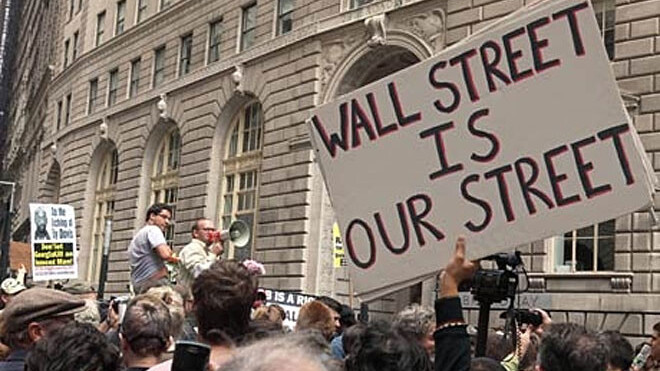
A leaked list of search terms which the Chinese government is ordering the country’s microblogging services to block has surfaced showing the regime’s fear of protests following those in Wall Street.
The list, obtained by China Digital Times, shows the Chinese government’s keenness to restrict the possible viral spread of any civil protests by blocking key hashtag keywords from appearing in search results and as trending topics on weibo (micoblog) sites in the country.
The majority of the terms are centered around potential protests in China’s provincial capital cities:
“Occupy Beijing”(占领北京), “Occupy Shanghai”(占领上海), “Occupy Guangzhou”(占领广州), “Occupy Xi’an”(占领西安), “Occupy Chongqin”(占领重庆), “Occupy Tianjin”(占领天津), “Occupy Urumqi”(占领乌鲁木齐), “Occupy Lhasa”(占领拉萨), “Occupy Changsha”(占领长沙), “Occupy Wuhan”(占领武汉), “Occupy Nanchang”(占领南昌), “Occupy Fuzhou”(占领福州), “Occupy Nanjing”(占领南京), “Occupy Dalian”(占领大连), “Occupy Hangzhou”(占领杭州), “Occupy Harbin”(占领哈尔滨), “Occupy Chengdu”(占领成都), “Occupy Kunming”(占领昆明), “Occupy Hohhot”(占领呼和浩特), “Occupy Haikou”(占领海口), “Occupy Zhengzhou”(占领郑州), “Occupy Changchun”(占领长春), “Occupy Shenyang”(占领沈阳), “Occupy Xining”(占领西宁), “Occupy Lanzhou”(占领兰州), “Occupy Taiyuan”(占领太原), “Occupy Yinchuan”(占领银川), “Occupy Shijiazhuang”(占领石家庄), “Occupy Jinan”(占领济南), “Occupy Nanning”(占领南宁).
Four cities are also included alongside more general terms which include “Occupy Financial Street”(占领金融街) and “Occupy China”(占领中国).
The Chinese government is well known for adopting a heavy handed approach to monitoring information published on the Internet, however the growth in weibo in the country has tempered the extent to which it can block content outright.
The government censors search terms on occasion for Sina, Tencent and other weibo services in the country, in a bid to restrict the potential flow of information across microblogs. Most services have ‘content management’ teams to help skirt potential issues, while other sites – such as Kandian, Sina’s new Kandian social video service – manually authorise all content before it goes live.
The Chinese government has been frustrated as the growth of microblogging in China, which are estimated to have more than 400 million registered users. News and developments commonly circulate through weibo services, giving the state little opportunity to control information in advance of it reaching many members of the public.
Last week, Twitter co-founder Jack Dorsey voiced his frustration that the company is “not allowed to compete” in China. It remains to be seen how Twitter, which CEO Dick Costolo labels “the free speech wing of the free speech party”, could work alongside a regime that enforces search censorship and is plotting to remove anonymity from microblog users in the country amongst other initiatives.
Get the TNW newsletter
Get the most important tech news in your inbox each week.




